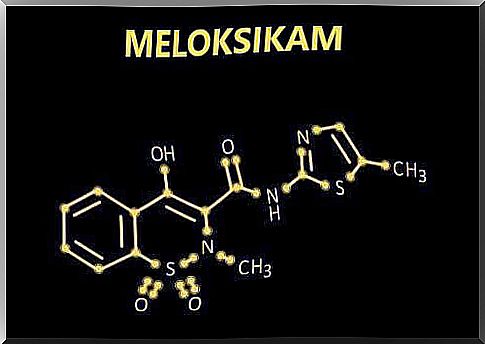Everything You Need To Know About The Active Substance Meloksikam

The active substance meloxicam is an active substance belonging to the group of analgesic, antipyretic and non-steroidal anti-inflammatory drugs. In this family there is also part of the group oxicam, a type of selective COX-2 inhibitors.
These medications are for the treatment of moderate postoperative pain and inflammation in osteoarthritis and arthritis. They can also be used to reduce fever. These are also prescribed to patients with Ankylosing Spondylitis.
What are COX enzymes?

Meloxicam, like most NSAIDs, has therapeutic effects as well as side effects, as demonstrated by researcher Vane in 1971.
Habit said that this type of medication has the ability to inhibit the activity of an enzyme called COX. An enzyme is a molecule that promotes and allows the development of various body mechanisms.
COX enzymes are synthetase enzymes that convert arachidonic acid from cell membranes to unstable cyclic endoperoxides. These are in turn transformed into prostaglandins and thromboxanes, without affecting other molecules.
Within the COX family, there are several subtypes: COX-1, COX-2 and COX-3. 1 and 2 have the same structure and similar molecular weight. The first is a permanently expressed enzyme. Cox-2, on the other hand, is an inducible enzyme.
COX-3 is only present in the central nervous system, so inhibition of it does not have anti-inflammatory effects, which can occur with some NSAIDs.
How does the active substance meloxicam trigger an effect in the body?
As we said above, the active ingredient meloxicam has anti-inflammatory, analgesic and antipyretic effects. These therapeutic actions occur via selective inhibition of COX-2.
As a result of this inhibition, the synthesis of prostaglandins and other substances related to inflammatory, febrile and painful processes is blocked.
Prostaglandins are a set of substances derived from fatty acids. They affect and act on the different physiological processes in different organismal systems, including the nervous system, smooth muscle, the blood and the reproductive system.
These are some of the main functions of prostaglandins:
- They mediate the inflammatory response
- In addition, they stimulate pain in some nerve endings
- They increase the secretion of gastric mucus and decrease the secretion of gastric acid
- They cause contraction of smooth muscles
- In the same way, they interfere with the regulation of body temperature and also with the fever process
- Finally, they control the reduction in blood pressure by promoting the elimination of substances from the kidneys
So when the enzymes responsible for their synthesis inhibit them, all of these processes reduce and improve the symptoms they produce. It then creates analgesic, anti-inflammatory and antipyretic effects.
In addition, various clinical studies showed that meloxicam is effective as an emergency contraception.
Side effects of the active substance meloxicam

Meloxicam is like all medicines on the market, except from producing a number of side effects a person must take into account when starting treatment.
In this sense, the most common adverse reactions reported in clinical trials with the active substance meloxicam were those affecting the digestive system. The most serious reactions were bleeding and perforations in the abdomen.
Some of the most frequently observed gastrointestinal side effects were:
- abdominal pain
- diarrhea
- dyspepsia
- flatulence
- nausea and vomiting
Conclusion
Meloxicam is a medicine that belongs to the family of painkillers, anti-inflammatory and non-steroidal antipyretic medicines. It is mainly used to treat pain and inflammation associated with diseases such as arthritis or osteoarthritis. Doctors also prescribe it for Ankylosing Spondylitis.
This drug is a selective inhibitor of the COX-2 enzyme and therefore blocks the synthesis of prostaglandins. You must exercise caution during administration. It is important to always follow your doctor’s instructions, as this medicine can trigger serious side effects such as bleeding in the gastrointestinal tract.
Consult your doctor with any questions you may have, and always follow their recommendations for use to avoid health complications.









